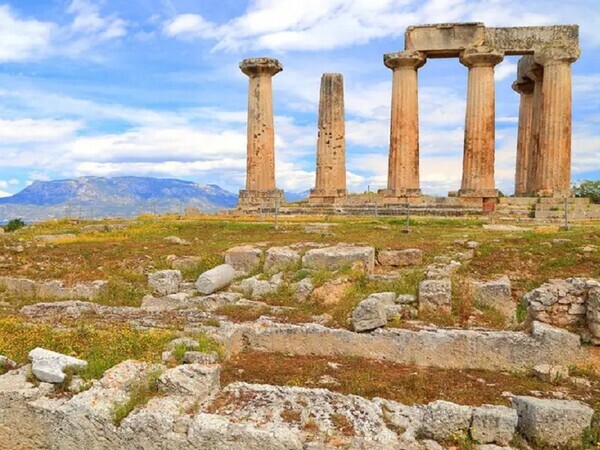Don’t Overlook Greek Etiquette

One of the key aspects to remember when in Greece is to observe and respect local customs. Greeks place a high value on politeness and respect in social interactions. Utilize phrases like "please" (parakaló) and "thank you" (efcharistó) appropriately, and always begin conversations with a warm "kalimera" (good morning) or "kalispera" (good evening). Demonstrating regard for the culture and language can significantly enhance your experience.
Avoid Political and Religious Discussions

It’s advisable to avoid discussions about politics and religion, as these topics can be touchy subjects in Greece. The country boasts a intricate political history, and viewpoints on these matters can widely differ. Instead, delve into conversations concerning the rich history, mythology, and local traditions, which are usually met with greater enthusiasm.
Mind Your Attire at Religious Sites

When visiting religious sites such as Orthodox churches and monasteries, be mindful of your dress code. Both men and women are expected to cover their shoulders and knees as a sign of respect. Failure to adhere to this attire guideline may lead to being denied entry. Keep a shawl or light jacket handy to cover up when necessary.
Be Aware of Hand Gestures

In Greece, waving with an open hand, known as the "mountza", is considered impolite. This hand gesture is offensive and used to insult others. Instead, use an open palm facing downwards, as you would when bidding farewell.
Avoid Public Displays of Affection

Despite being a romantic destination, public displays of affection are generally frowned upon in Greece. Actions such as kissing and hugging in public can be deemed inappropriate, especially in more conservative regions. It’s advisable to reserve such displays for private settings.
Don’t Litter or Damage Ancient Sites

Greece boasts numerous ancient archaeological sites that demand utmost respect. Refrain from littering, defacing monuments, or touching artifacts. Adhere strictly to the regulations and guidelines stipulated by site authorities to aid in the preservation of these invaluable treasures for future generations.
Polite Bargaining

Bargaining in local markets is a common practice in Greece, but it’s important to do so with politeness and respect. Greeks value friendly negotiation, and overly aggressive haggling can be seen as disrespectful. When shopping for souvenirs or at local markets, maintain a courteous and respectful demeanor throughout the process.
Moderate Tipping

Tipping is customary in Greece, yet there's no need to tip excessively. In restaurants, rounding up the bill or leaving a modest tip (around 5-10%) is appropriate. Over-tipping can sometimes be perceived as flaunting wealth and may make locals uncomfortable.
Mind Your Feet

In Greece, it's considered impolite to point the soles of your feet at people or religious objects. When sitting, be mindful of your feet’s position, especially in social settings. It's best to sit with your legs crossed or your feet flat on the ground to show respect.
Savor the Meal

Dining in Greece is a leisurely experience, and rushing through your meal is viewed as impolite. Take your time to savor the flavors and enjoy the company of your fellow diners. Greeks see meals as social occasions to be enjoyed at a relaxed pace, so embracing this approach is key to respectful dining.
Greece, with its rich cultural heritage, warmly welcomes travelers from around the globe. To ensure a respectful and harmonious visit, it's important to be aware of and adhere to local customs and etiquette. By following the tips in this article and immersing yourself in the local culture, you can enhance your travel experience and foster positive interactions with the locals. Traveling with respect and cultural awareness not only enriches your own experience but also promotes goodwill and meaningful cultural exchanges.












